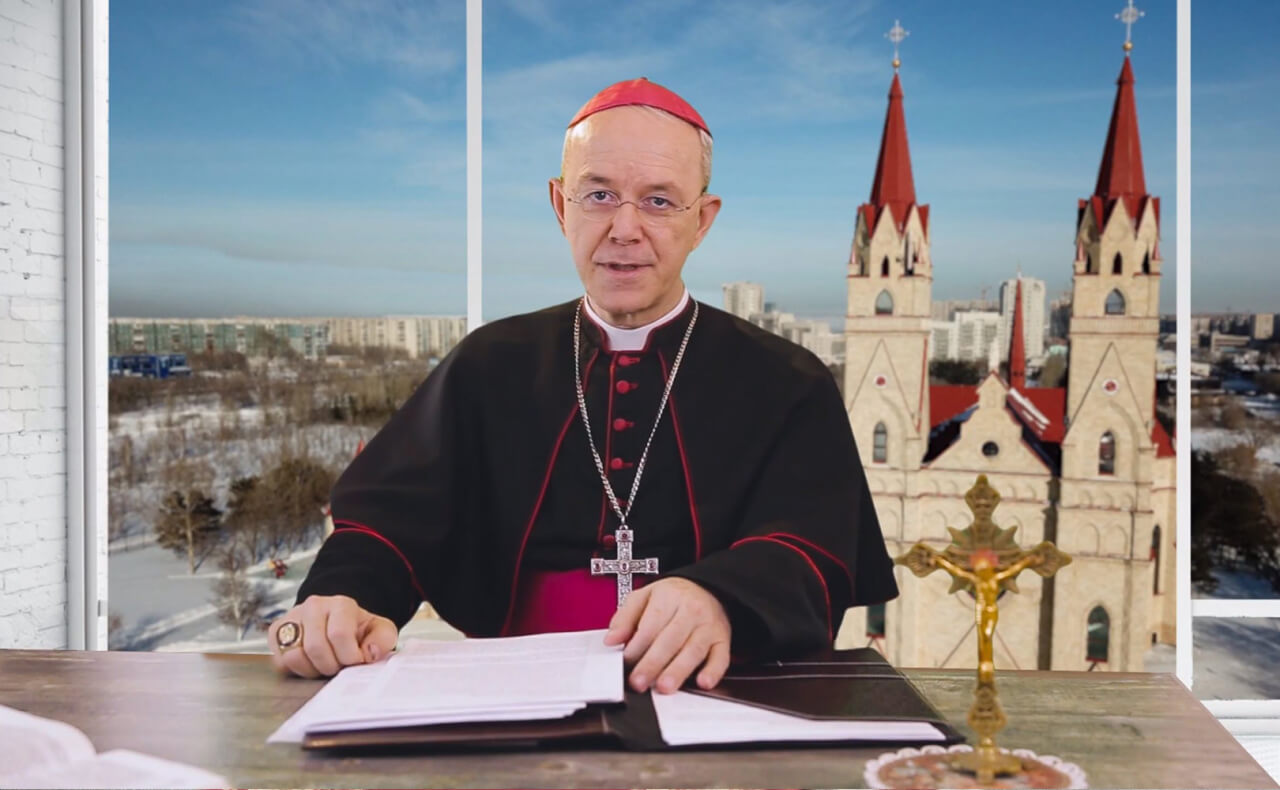The prohibition of the traditional Latin Mass is an abuse of ecclesiastical power and noncompliance with its prohibition does not in fact constitute disobedience
Bishop Athanasius Schneider
- The traditional Roman liturgy of the Mass was the liturgy of our Catholic ancestors. It was the form of the Mass with which most of the European nations (except some Eastern European countries and the Ambrosian and Mozarabic rites), all American nations, and most of the African, Asian, and Oceanian nations were evangelized.
- “What earlier generations held as sacred, remains sacred and great for us too” (Pope Benedict XVI).
- “The problem with the new Missal lies in its abandonment of an ever-continuous history, before and after St. Pius V, and in the creation of a thoroughly new book (albeit compiled of old material)” (Cardinal Joseph Ratzinger).
- The new Missal’s “publication was accompanied by a kind of prohibition of all that came before it, which is unheard-of in the history of ecclesiastical law and liturgy” (Cardinal Joseph Ratzinger).
- “I can say with certainty, based on my knowledge of the conciliar debates and my repeated reading of the speeches made by the Council Fathers, that this [i.e., the reform as it is now in the new Missal] does not correspond to the intentions of the Second Vatican Council” (Cardinal Joseph Ratzinger).
- The traditional Roman liturgy of the Mass was the liturgy of all the Latin-rite Saints whom we know at least during the entire last millenium; hence its age is millennial. Although commonly called the “Tridentine” Mass, the exact same form of the Mass was already in use several centuries before the Council of Trent, and that Council asked only to canonize that venerable and doctrinally sure form of the liturgy of the Roman Church.
- The traditional Roman liturgy of the Mass has the closest affinity with the Eastern rites in bearing witness to the universal and uninterrupted liturgical law of the Church: “In the Roman Missal of Saint Pius V, as in several Eastern liturgies, there are very beautiful prayers through which the priest expresses the most profound sense of humility and reverence before the Sacred Mysteries: they reveal the very substance of the Liturgy” (Pope John Paul II).
- The Pope and the bishops do not have, therefore, the authority to forbid or to limit such a venerable form of the Holy Mass, which was offered by the Saints for over a thousand years, in the same way as the Pope or the Bishops would not have the authority to forbid or significantly reform the venerable form of the Apostolic or Niceno-Constantinopolitan Creed, precisely because of their venerable, continuous, and millennium-old use.
- Complying with the abusive prohibition of that venerable form of the Mass of the Saints, issued unfortunately by current churchmen in a time of unprecedented ecclesial crisis, would constitute a false obedience.
- Noncompliance with the prohibitions of the traditional Mass does not make one, by that fact, schismatic, provided one continues to recognize the Pope and the bishops and continues to respect them, and pray for them.
- In disobeying formally such an unheard-of prohibition of an inalienable patrimony of the Roman Church, one in fact obeys the Catholic Church of all ages and all the Popes who diligently celebrated and commanded the preservation of that venerable and canonized form of the Mass.
- The current prohibition of the traditional rite of the Mass is a temporary phenomenon and will cease. The Roman Church is experiencing today a kind of liturgical exile, i.e., the traditional Latin Mass has been exiled from Rome; yet the exile will, for sure, one day come to an end.
- Since the traditional Latin Mass has been in uninterrupted use for more than a millennium, sanctified by universal reception over time, by the Saints and by the Roman Pontiffs, it belongs to the inalienable patrimony of the Roman Church. Consequently, in the future the Roman Pontiffs will without doubt once again recognize and re-establish the use of that traditional liturgy of the Mass.
- Future Popes will thank all priests and faithful who, in difficult times, notwithstanding all pressures and false accusations of disobedience, and in a spirit of sincere love for the Church and for the honor of the Holy See, maintained and transmitted the great liturgical treasure of the traditional Mass for future generations.


